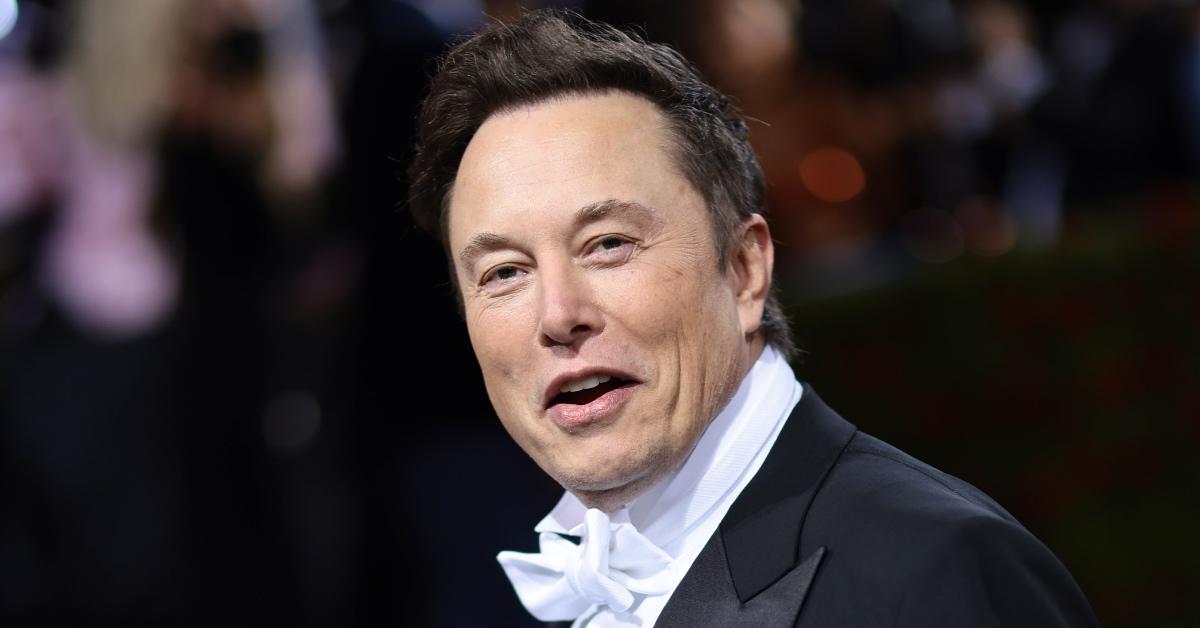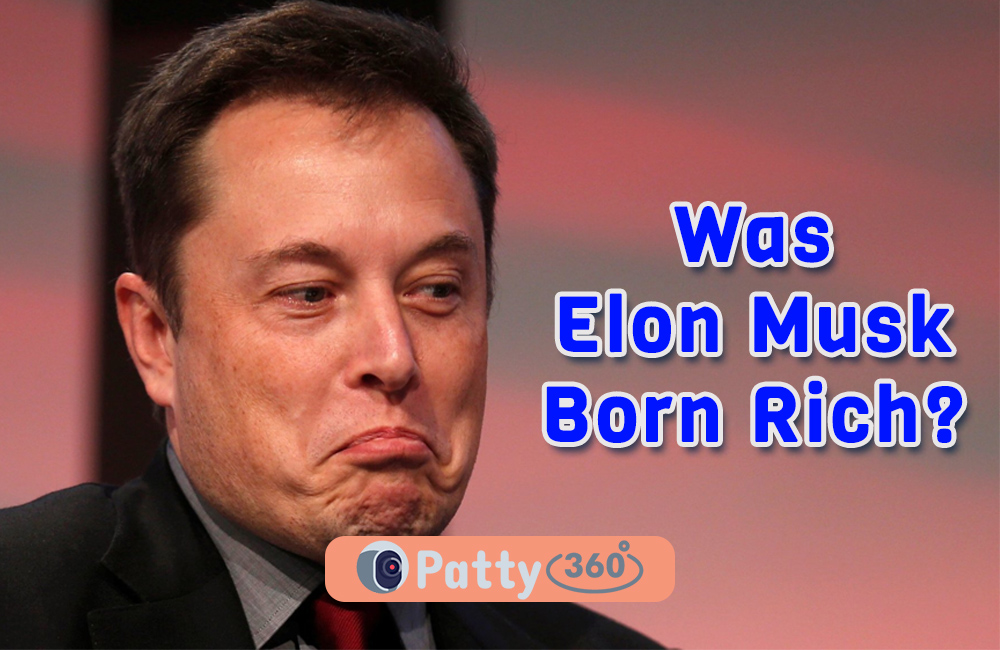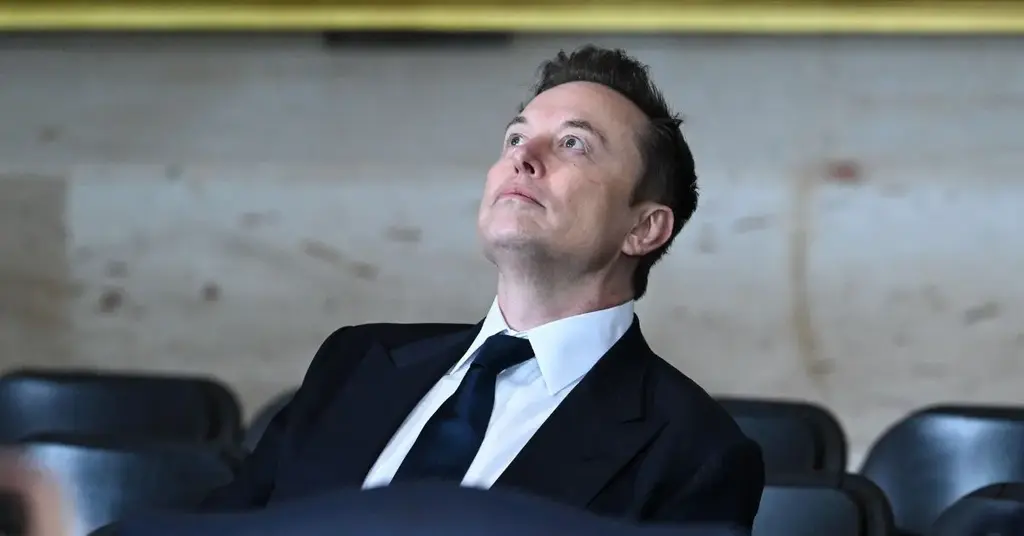Did You Know? Was Elon Musk Born Rich?
Was Elon Musk born rich? The narrative surrounding Elon Musk is often painted with the broad strokes of a self-made titan, a visionary who pulled himself up by his bootstraps. However, a closer examination reveals a more nuanced picture, one where early advantages played a significant role in shaping his trajectory. This is not to diminish his accomplishments, but to offer a more complete understanding of the circumstances that contributed to his remarkable rise.
The question of Musk's wealth at birth and the subsequent influence of his familys resources is a critical one. It forces us to consider the role of privilege in achieving extraordinary success. While tales of childhood coding prowess and early entrepreneurial ventures abound, they exist within a framework that afforded him opportunities unavailable to many. Disentangling the strands of inherited wealth, familial support, and sheer individual talent is a complex undertaking, but a necessary one if we are to truly understand the foundations upon which Musk built his empire. The impact of his father's ownership of an emerald mine and their lifestyle are integral to understanding the early stages of Musk's life.
Here's a breakdown of key biographical and professional aspects of Elon Musk:
| Category | Details |
|---|---|
| Full Name | Elon Reeve Musk |
| Born | June 28, 1971, in Pretoria, South Africa |
| Citizenship | South African, Canadian, American |
| Parents | Errol Musk (Engineer, Property Developer) and Maye Musk (Model, Dietitian) |
| Siblings | Kimbal Musk, Tosca Musk |
| Education | University of Pennsylvania (B.A. in Physics, B.A. in Economics); Stanford University (Ph.D. program in Physics dropped out) |
| Early Ventures | Zip2 (Co-founder, sold to Compaq); X.com/PayPal (Co-founder, merged with Confinity) |
| Companies Founded/Led | SpaceX (CEO, CTO); Tesla, Inc. (CEO, Product Architect); Neuralink (Founder); The Boring Company (Founder) |
| Net Worth (Approximate, as of October 26, 2023) | Estimated at $245 billion (Bloomberg Billionaires Index) |
| Marital Status/Family | Divorced twice. Has 10 children. |
| Philanthropic Activities | Musk has been involved in various philanthropic endeavors, often focused on environmental sustainability and scientific research. |
| Key Achievements | Revolutionizing electric vehicles with Tesla; Advancing space exploration with SpaceX; Developing innovative tunnel infrastructure with The Boring Company. |
| Controversies | Frequent use of social media; Controversial statements and actions related to company policies and leadership decisions; acquisitions and management of Twitter (now X). |
| Awards and Recognition | Numerous awards for innovation, business leadership, and contributions to technology, including being named one of the world's most influential people by various publications. |
| Reference | Bloomberg Billionaires Index - Elon Musk Profile |
Born in Pretoria, South Africa, in 1971, Elon Musk's early life was marked by certain advantages. His father, Errol Musk, was a successful engineer and property developer. Although Errol Musks assertions about his wealth and the emerald mine have been subject to scrutiny, the family undeniably enjoyed a comfortable lifestyle, allowing young Elon access to resources that may have been denied to others. This included access to private schooling, a supportive home environment conducive to learning and exploration, and the freedom to pursue his interests without the immediate pressure of financial survival. The familys ability to relocate for better opportunities further highlights a level of privilege that often goes unacknowledged.
The economic landscape of South Africa during Musk's childhood and adolescence also played a role. While the apartheid regime was coming to an end, and while there were undoubtedly hardships, the Musk family's relative affluence provided a buffer against some of the era's social and political turmoil. This security afforded him a measure of stability and the ability to focus on his intellectual pursuits. Furthermore, the cultural environment, with its emphasis on innovation and technological advancements, may have influenced his early ambitions.
Elon Musks move to Canada at the age of 17, followed by his subsequent relocation to the United States, marked a significant turning point. While this move wasn't solely financed by inherited wealth, it was facilitated, in part, by his familys ability to provide financial support. This support, however, doesnt negate his personal drive. His decision to study at the University of Pennsylvania and pursue dual degrees in physics and economics, demonstrates a clear ambition and intelligence. These choices, coupled with his entrepreneurial spirit, would eventually propel him towards his groundbreaking ventures.
The genesis of Zip2, one of Musks early ventures, is another important piece of the puzzle. With financial backing from his father and a keen understanding of the burgeoning internet, Zip2 capitalized on the early days of the World Wide Web. The eventual sale of Zip2 to Compaq for a significant sum provided Musk with his first major financial windfall, setting the stage for his future investments in SpaceX and Tesla. This early success, fuelled by a combination of his technical skills, business acumen, and capital, became the springboard for his later, even more ambitious, endeavors. His subsequent role at X.com, later PayPal, built upon this initial success.
The launch of SpaceX in 2002 marked a pivotal moment in Musks career. The company, with its audacious goals of colonizing Mars, required substantial capital and unwavering commitment. While Musk invested a considerable portion of his own wealth, the initial investments, along with support from venture capitalists, were facilitated by his previous successes. This ability to attract investors and assemble a team of highly skilled individuals is a testament to his vision and his ability to inspire confidence. His ability to secure contracts with NASA further solidified SpaceX's position in the space industry.
Tesla, Inc., another cornerstone of Musks empire, faced numerous challenges during its early years. The electric vehicle market was nascent, and the company struggled with production issues and financial instability. Musk's unwavering commitment and financial investment, drawn from his earlier successes, were crucial to keeping the company afloat. This willingness to take risks and embrace challenges is a hallmark of his leadership, though it's important to remember the financial foundations that allowed him to take those risks in the first place.
The acquisition and subsequent management of Twitter (now X) offer a complex example of Musk's style. The deal, financed through a combination of his personal wealth, loans, and investments from other parties, was met with both enthusiasm and skepticism. The changes made by Musk, including the restructuring of the company and the adoption of new content moderation policies, have generated considerable debate. This venture provides a recent insight into his decision-making process, illustrating the complexities of his approach to business and the power of his influence.
It is imperative to note that acknowledging early advantages is not about diminishing Musks achievements. His accomplishments in the fields of space exploration, electric vehicles, and sustainable energy are undeniable. He has fundamentally altered the landscape of several industries and inspired countless people with his ambitious vision. Instead, it is about gaining a complete and accurate understanding of the forces that shaped his journey. Recognizing the role of family support, economic factors, and the broader social context, enables a more insightful appreciation of his extraordinary success. It also prompts questions about the distribution of resources and opportunities within society, raising important considerations about fairness, equity, and the potential for future generations to achieve success.
The narrative of the self-made man often simplifies a complex reality. By examining the details of Elon Musk's early life, we can better appreciate the interplay of talent, drive, and circumstance. His story serves as a case study, revealing how inherited resources, access to education, and a supportive environment can significantly influence one's trajectory. As we continue to grapple with questions of wealth inequality and social mobility, understanding the nuances of success stories like Musk's becomes increasingly relevant. It highlights the need to acknowledge the various factors that contribute to individual achievement and work towards a more equitable society, where opportunity is available to all, regardless of their starting point. This is not to minimize the challenges that Musk faced but to place them in a broader context that recognizes the complexities of his rise.
Furthermore, the evolution of Musks personal and professional lives provides an ongoing case study in the power of reinvention and the importance of adapting to changing circumstances. His ability to pivot from one industry to another, to embrace new technologies, and to respond to market forces demonstrates a keen understanding of the evolving needs of society. His relentless pursuit of innovation has helped to push the boundaries of what is possible, influencing fields from automotive engineering to space exploration. However, it's also crucial to consider the responsibility that comes with such influence, especially when considering his impact on the discourse surrounding free speech and social media through his ownership of Twitter.
Analyzing the role of privilege in Musk's success also demands reflection on the responsibilities of those who achieve considerable wealth and influence. Musks philanthropic efforts, although substantial, have been a subject of discussion. His commitment to addressing climate change through Tesla and promoting space exploration through SpaceX reflects a broader concern for the future of humanity. However, the scale of his personal wealth and the societal impact of his businesses also raise questions about accountability and the role of corporations in addressing pressing social and environmental challenges. His decisions and the effects they have on society create a ongoing debate on how wealth and power should be used.
Ultimately, the inquiry of whether Elon Musk was born rich is not meant to diminish his achievements but to provide a fuller, more nuanced picture of his story. It encourages a deeper consideration of the systems and structures that contribute to the success of individuals, providing valuable insights into the complexities of wealth, privilege, and social mobility. By looking beyond the simplified narratives, we can gain a more complete understanding of how individuals like Elon Musk have achieved their remarkable accomplishments and think critically about the conditions that shape those achievements. This deeper understanding provides a foundation for a more informed discussion about the possibilities and challenges in the future of our society.
In conclusion, while Elon Musks talents, determination, and innovative spirit are undeniable, the advantages he received early in life including family support, financial resources, and a conducive environment played a significant part in shaping his journey. Acknowledging these factors does not detract from his accomplishments but enriches our understanding of the multifaceted forces that propel individuals to extraordinary heights and provides a more complete picture of his climb. It challenges us to consider the interplay of personal ambition, societal structures, and the role of privilege in shaping individual trajectories and fostering innovation.



